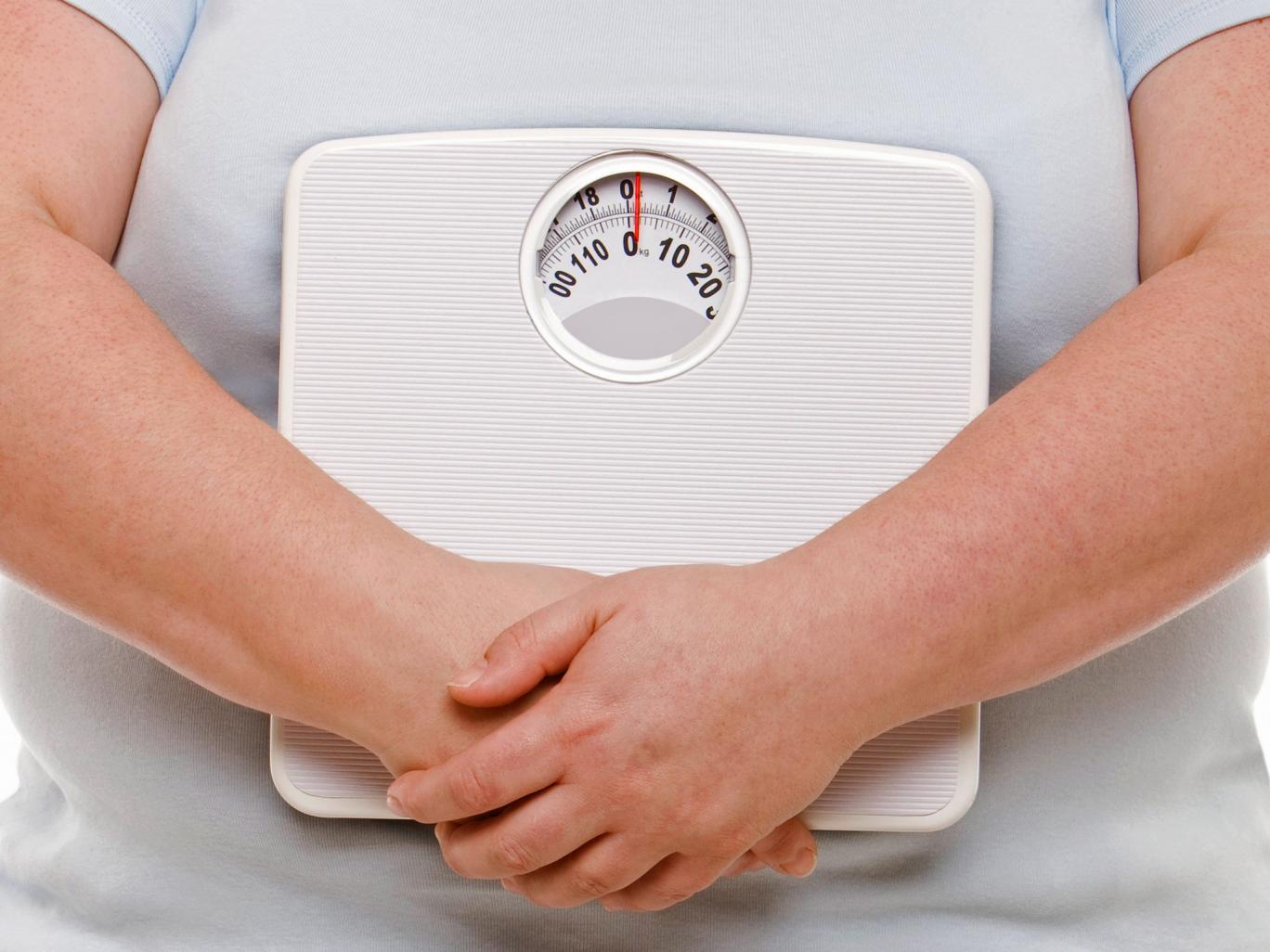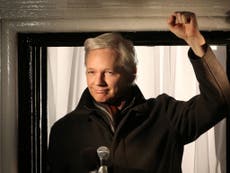Nagging adults about their weight won’t solve the obesity crisis – teaching children about nutrition might
It will take a decade to change attitudes to food, and cooking has to be a central part of the school day, with compulsory school meals that pupils help to prepare


The NHS is going bust and hospitals, facing a £2.2bn overspend this year, have been told they have no option but to balance their books. Radical cuts will be implemented, and staffing levels will suffer.
The people who will notice the difference in service will be the patients – the people who pay for the NHS in the first place. Experts agree that the NHS is “full of waste”; this week a report reckoned that £1bn could be saved annually by releasing patients who are fit earlier, freeing up to 5,500 beds a day. This proposal is like shuffling deckchairs on the Titanic: bed-blockers have got to go somewhere – residential or outpatient care or rehabilitation, or supported care in their own homes – and who is going to pay for that? Home-care visits are already so short that there’s no time for more than a wash and a wipe, and no chat.
One way of saving money would be to disband pointless quangos like the National Institute for Health and Care Excellence (Nice), which regularly comes up with inane suggestions about how to improve the nation’s health. It would like GPs to get paid for encouraging patients with a body mass index (BMI) in the obese range to attend Weight Watchers and be offered advice about a healthier lifestyle. This morbid obsession with targeting the nation’s fatties is doomed. Being large does not necessarily mean you are unfit.
The way to tackle overeating and poor diet is not by paying GPs (who are already very well rewarded) but by starting cookery and nutrition lessons at primary school, focusing on food preparation as a way of teaching social skills, maths and English.
It will take a decade to change attitudes to food, and cooking has to be a central part of the school day, with compulsory school meals that pupils help to prepare. Tackling overeating by dishing out vouchers is like building a house with balsa foundations.
Last year, Nice recommended that GPs were paid an extra £55 for every patient they diagnosed with dementia, once again slinging money at a problem but not coming up with a long-term strategy.
New research in California has found that 47 per cent of those whose BMI was in the overweight range were, in fact, totally healthy, along with 29 per cent of the moderately obese and 16 per cent of the extremely obese. Three-quarters of those dubbed “underweight” were also healthy. Another study, by the University of Chicago, shows that loneliness has a larger impact on mortality and life expectancy than obesity. Nice seems to want a simple solution to a complex issue.
Life can be more enjoyable and easier if you’re slimmer, but nagging people will fail. GPs who have about 12-minute appointments per patient are not going to possess the necessary counselling skills to make any psychological difference to ingrained behaviour.
I’ve just returned from Australia, where obesity is a big issue too: portion sizes are huge and large amounts of meat are eaten daily. There, a new movement has been spawned – “Fat Priders” – who place their battle for acceptance in the same category as the civil rights and gay pride movements.
The fat acceptance movement, which is predominately female and includes radical feminists and gay activists, is a noisy presence on social media, known as the “fat-o-sphere”. Fatties are being targeted in Australia in the same way that Nice is gunning for them in the UK. Last year, there was a call to charge overweight pregnant women extra (between £100 and £225) to sedate them for the birth of their babies, as their size meant the birthing process took longer. The idea got nowhere in Australia, but that’s not to say it won’t be floated by the Nice “fat-shamers” to save the NHS a few pence.
The Government has more pressing problems than targeting people with the “wrong” BMI.
The Queen as a role model for healthy eating – why not?
Tomorrow is the biggest day of the year for US sports fans, and television coverage will be punctuated by ads containing a stern warning about driving while drunk, delivered by the actress Helen Mirren.
Adopting her most regal tones, delivered in the style of the Queen’s Christmas broadcast, Mirren tells us “don’t be a pillock”. Unfortunately, this inspired health and safety message is slightly undermined when she signs off by swigging from a bottle of Budweiser beer, made by brewers who paid for the ad.
I wondered if the Government is missing a trick here. At the moment she delivers a message only once a year or in times of crisis, but should the Queen be used more frequently to make us behave better? Could a sensible eating and drinking campaign shot at Balmoral, featuring a sprightly pensioner, have more impact than GPs getting a fiver for sending us to Weight Watchers?
Freedom of thought is sacred, even if you don’t agree
I copped flak from some gay friends back in July 2014, when I commented that asking a well-known Christian family business in Belfast to bake a cake with the slogan “support gay marriage” was no way to win hearts and minds to the cause.
The McArthurs, who refused to bake the cake, citing their religious beliefs, were taken to court and ordered to pay £500 for breaching EU equality laws. Their appeal was halted this week, after a dramatic intervention by the Attorney General, who said that there was a potential conflict between anti-discrimination laws and the EU human rights charter which enshrines the right to freedom of thought.
A few days earlier, gay rights campaigner Peter Tatchell had raised exactly the same point, admitting he had changed his mind since the original hearing and now thought that the McArthurs had the right to hold their views, no matter how much he disagreed with them. As Tatchell said, “discrimination against people should be unlawful, but never discrimination against ideas and opinions”. Precisely the point I was trying to make back in 2014.
The right to freedom of thought cannot be trampled over by the law. Charlie Hebdo had the right to print a cartoon of Mohamed, so why are strait-laced Christian bakers any different? The misguided campaigners who want the statue of Cecil Rhodes removed from Oriel College, Oxford, are part of a disturbing trend, which is to stifle or silence anything which is not politically correct.
Anyone can buy your music – even Donald Trump
Adele is reportedly furious that one of her songs, “Rolling in the Deep”, is being used by presidential hopeful Donald Trump as warm-up music at his rallies. She had not given permission for her music to be played during any political campaigns, joining the ranks of Michael Stipe, Elton John and Aerosmith’s Steven Tyler – all of whom have complained about their work being used by the mouthy billionaire.
I sympathise, but you could argue that once a song is released it belongs to everyone. Why nitpick about where it’s played, and who can listen to it? Why should singer-songwriters assume the role of God, decreeing what is an acceptable context in which to hear their tunes? Popular music can be bought by homophobes, bigots and violent criminals, and is readily available online to all. Why single out the repugnant Donald Trump for special treatment?
Back in 2013, Thom Yorke of Radiohead threatened to “sue the living shit” out of David Cameron if he used one of his songs in an election campaign. Grow up, for God’s sake.



Join our commenting forum
Join thought-provoking conversations, follow other Independent readers and see their replies